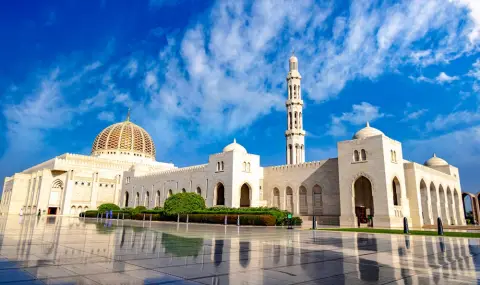The US and Iran are renewing their talks in Oman. The sultanate has been trusted for years - it is known for its discretion and neutrality. Oman is not a country that often makes headlines. The country, which is known mainly for its natural beauty and popularity among tourists, is something like Switzerland in the Middle East - its preferred position is neutral, ARD points out.
“We do not take sides - neither for one nor the other”, said years ago the then Foreign Minister of Oman, Yusuf bin Alawi. “We are trying to give both sides the opportunity to do what we think would be best for them.“
"Oman is a moderator of the region"
Unlike their aggressive neighbors in the Persian Gulf with big egos and a need for recognition - Saudi Arabia, the United Arab Emirates and Qatar, and on the other side of the Gulf - Iran, the Omanis are considered modest and reserved. This trait of theirs obviously also has a political impact - the country has not been involved in a conflict for more than five decades, but has repeatedly proven itself as a successful mediator, the German public-law media outlet points out.
“The Sultanate of Oman is a moderator of the region“, says American political scientist Professor Mark O'Reilly, who has been studying Oman for years. He defines its role as historical. “Oman controls a large part of the Indian Ocean and has had good relations with many countries over the centuries – that is how it has achieved its good diplomatic reputation.“
One hundred percent discretion
This reputation is reflected to this day: meeting in Oman for a new round of negotiations on the Iranian nuclear program, the Iranian foreign minister and the American special envoy Witkoff know that they can rely one hundred percent on their host and his discretion. “Oman prefers quiet diplomacy. They do not want to attract attention, as Qatar does. They keep in the shadows, facilitating negotiations, without expecting glory and honors in the end“, says Professor O'Reilly on this occasion.
And as ARD points out – discretion pays off. This was the case back in 2015, when Oman laid the foundations for the nuclear deal with Iran. The sultanate also played an important role in bringing the irreconcilable enemies Saudi Arabia and Iran closer together, as well as in the release of the hostages from Yemen.
Years ago, the then US Secretary of State John Kerry explicitly praised Oman's role, the German public-law media outlet recalls. "His Majesty the Sultan of Oman helped us do things that would have been difficult to achieve otherwise," Kerry said. Oman has contributed a lot to the dialogue, for which it is receiving appropriate thanks.
Working without much noise
Oman provides all the conditions for the negotiators to work undisturbed. Journalists are not welcome and almost no information comes out of the negotiations. “The sultanate and its rulers are known for not making any interim declarations in these cases. They work quietly until the mission is completed. It is announced at the very end“, says Omani political scientist Mohammed Al-Araimi.
Usually, delegations meet in different rooms, without meeting - and send each other news and proposals. Not otherwise, but through a third party - the Omanis often play the role of couriers and carry messages from one room to another, ARD reports. They themselves do not see themselves as active mediators, but as moderators who can help find the solution that the disputing parties are looking for in the negotiations.
Oman is counting on its good relations with all countries - both with the West and with Iran. This is beneficial for both Iran and Oman, says American political analyst Jay Peterson. “These relations help Iran negotiate with great powers like the United States. And Oman uses them to maintain stability in the region and strengthen its own foreign policy.“
"Optimism to become reality"
There is no other place in the world than Oman that all countries trust to such an extent, say political observers. And this time too: after US President Donald Trump canceled the nuclear agreement on the American side during his first term, the opponents are now meeting again in Oman.
“These are not specific negotiations for an agreement, but first talks - a test to probe the situation“, explains Omani political analyst Al-Araimi. This is the first step before the next ones that will follow.
At the same time, Oman does all this with restraint - it does not seek media and international recognition, but is happy when diplomatic efforts again lead to success. In Oman, people generally think positively, Foreign Minister Badr Albusaedi said a few months ago, ARD recalls. “We always work with optimism and try to make it a reality.“
It is doubtful whether this optimism will be justified now - in the negotiations between Iran and the US, but at least it is worth trying, ARD comments.
Author: Anna Ozius ARD
